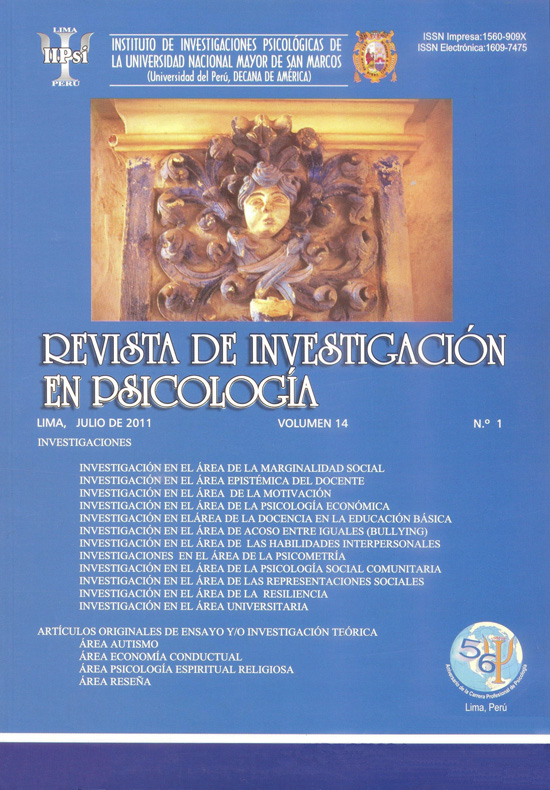Explanatory styles and management skills for negotiation of conflicts in adolescent spectator violence among peers
DOI:
https://doi.org/10.15381/rinvp.v14i1.2078Keywords:
adolescents, spectators of bullying, conflict management, explanatory styleAbstract
It was Studied the relationships between explanatory styles and management skills for negotiating conflicts in bullying young viewers, in order to clarify and, in future, propose alternatives to prevent this problema, on the understanding that, as previous studies have concluded, explanatory style that everyone argues about their responsibility in the development of interpersonal conflict is linked to their own ability to handle them. To obtain the data was used: the attributional styles questionnaire, the Test Management Skills in Negotiation of Conflict, Scale to identify the type of viewer Peer Violence. Hypothesis was tested using a descriptive design-comparative, with a sampling circumstantial the study population. To quantify the results using analysis of variance found statistically significant differences between the types of audiences in 4 of 5 attributional styles and 3 of the 5 skills to manage interpersonal conflicto. This also used the Pearson correlation coefficient to establish correlations between these variables. found as postulated hypotheses, there is a direct and significant correlation between the prosocial viewer and all skills to manage interpersonal conflicts, whereas, by contrast, blamed amoral viewer and indifferent spectator do not correlate with these skills, except for the commitment with which the correlation is inverse and significant. On the other hand, as postulated, the prosocial spectator correlates positively and significantly to attribute their own successes to his effort and skill, and amoral and indifferent blamed spectators, correlate significantly to attribute causes of successes and failures other than themselves , and to attribute their failures to themselves.Downloads
Published
Issue
Section
License
Copyright (c) 2011 Alberto Quintana Peña, William Montgomery U., Carmela Malaver Soto, Gabriela Ruiz S.

This work is licensed under a Creative Commons Attribution-NonCommercial-ShareAlike 4.0 International License.
THE AUTHORS RETAIN THEIR RIGHTS:
a. The authors retain their trademark and patent rights, and also on any process or procedure described in the article.
b. The authors retain the right to share, copy, distribute, execute and publicly communicate the article published in the Journal of Research in Psychology (for example, place it in an institutional repository or publish it in a book), with acknowledgment of its initial publication in the Journal of Research in Psychology.
c. Authors retain the right to make a subsequent publication of their work, to use the article or any part of it (for example: a compilation of their work, lecture notes, thesis, or for a book), provided that they indicate the source. of publication (authors of the work, magazine, volume, number and date).






